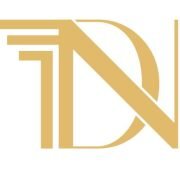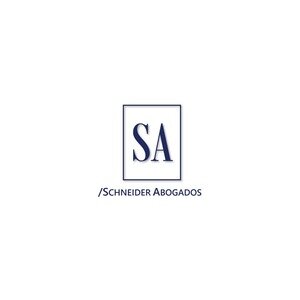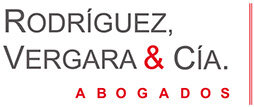Best Business Lawyers in Chile
Share your needs with us, get contacted by law firms.
Free. Takes 2 min.
Or refine your search by selecting a city:
List of the best lawyers in Chile
About Business Law in Chile
Business law in Chile encompasses a wide range of legal principles governing commercial relations and corporate affairs in one of Latin America's most open and stable economies. As a hub for international trade and business, Chile boasts a modern and transparent regulatory framework that promotes foreign investment and entrepreneurship. The country's legal system, largely drawn from the civil law tradition, ensures predictable and secure operations for businesses. Key sectors include mining, agriculture, telecommunications, and financial services, making Chile an attractive destination for both local and international ventures.
Why You May Need a Lawyer
There are numerous reasons why businesses in Chile may require legal assistance. Here are a few common situations:
- **Starting a Business**: Legal advice can be crucial for understanding the different types of business entities, such as limited liability companies or corporations, and for ensuring compliance with local registration requirements.
- **Contracts and Agreements**: Expert advice is often needed to draft, review, or negotiate contracts to protect against potential disputes and ensure compliance with Chilean laws.
- **Employment Issues**: Navigating labor laws, managing employment contracts, and resolving disputes with employees may require legal intervention.
- **Intellectual Property**: Protecting trademarks, patents, and copyrights in Chile's competitive market often requires specialized legal advice.
- **Regulatory Compliance**: Businesses must adhere to various sector-specific regulations, including environmental laws and anti-corruption measures.
- **Dispute Resolution**: In case of business disputes, legal representation can be vital during negotiations, mediations, or litigation.
Local Laws Overview
Understanding Chile's business laws is essential for any entrepreneur or investor. Key aspects include:
- **Corporate Law**: Companies in Chile can choose from different business forms, each with unique features and requirements. These include corporations (sociedades anónimas) and limited liability companies (sociedades de responsabilidad limitada).
- **Taxation**: Chile's tax system requires businesses to comply with direct and indirect taxes, such as the corporate income tax (Impuesto de Primera Categoría) and value-added tax (IVA).
- **Labor Laws**: Employment relationships are governed by comprehensive labor regulations ensuring workers' rights, including minimum wage, working conditions, and severance rules.
- **Intellectual Property**: The National Institute of Industrial Property (INAPI) oversees the protection and registration of IP rights, aligning with international treaties like the TRIPS Agreement.
- **Environmental Regulations**: Companies, particularly in industries like mining and energy, must comply with environmental regulations that aim to preserve Chile's natural resources.
Frequently Asked Questions
1. What are the main types of business entities in Chile?
The primary types are limited liability companies (SRLs), stock corporations (SAs), and branches of foreign companies.
2. How long does it take to incorporate a business in Chile?
On average, incorporating a business can take between 15 to 20 days, depending on the business structure and complete documentation.
3. Is it necessary to have a legal representative in Chile?
Yes, businesses must appoint a legal representative who resides in Chile to handle legal affairs.
4. How does the taxation system work for businesses?
Businesses are subject to a range of taxes, with the corporate tax rate currently at 27% for resident companies.
5. Are there any incentives for foreign investors?
Chile offers various incentives, such as tax treaties and free trade zones, to attract foreign investment.
6. What labor rights should businesses be aware of?
Minimum wage, working hours, conditions of employment, and rights during termination are primary aspects encompassed in Chilean labor law.
7. How can a business protect its intellectual property?
Register trademarks and patents with INAPI and consider enforcing IP rights through legal channels if necessary.
8. What environmental obligations do businesses have?
Businesses must comply with environmental assessment procedures and other regulatory requirements pertinent to their operations.
9. Can disputes be settled out of court?
Yes, mediation and arbitration are common methods for resolving disputes outside of court.
10. How to handle imports and exports?
Chile follows a streamlined process for trade in goods and services, with customs managed by the National Customs Service.
Additional Resources
For further assistance and information, consider these valuable resources:
- **ProChile**: This government agency supports the export of Chilean goods and services.
- **InvestChile**: The Foreign Investment Promotion Agency offers resources for investment opportunities in Chile.
- **SERNAC**: The National Consumer Service provides insights into consumer rights and business responsibilities.
- **Superintendencia de Insolvencia y Reemprendimiento**: Offers guidance on company reorganizations and insolvency proceedings.
Next Steps
If you require legal assistance in business, consider these next steps:
- **Research**: Start by understanding the basics of the legal area you are concerned about. This preparation will make your consultations more productive.
- **Consult with Experts**: Identify and consult with attorneys specializing in business law within Chile who have expertise relevant to your specific needs.
- **Gather Documents**: Collect any relevant documents or contracts that you might need for legal scrutiny or review.
- **Consider Local Associations**: Engage with local business associations for peer advice and recommendations.
- **Regular Reviews**: Once set up, ensure regular compliance and legal audits to stay current with evolving laws and regulations.
Lawzana helps you find the best lawyers and law firms in Chile through a curated and pre-screened list of qualified legal professionals. Our platform offers rankings and detailed profiles of attorneys and law firms, allowing you to compare based on practice areas, including Business, experience, and client feedback.
Each profile includes a description of the firm's areas of practice, client reviews, team members and partners, year of establishment, spoken languages, office locations, contact information, social media presence, and any published articles or resources. Most firms on our platform speak English and are experienced in both local and international legal matters.
Get a quote from top-rated law firms in Chile — quickly, securely, and without unnecessary hassle.
Disclaimer:
The information provided on this page is for general informational purposes only and does not constitute legal advice. While we strive to ensure the accuracy and relevance of the content, legal information may change over time, and interpretations of the law can vary. You should always consult with a qualified legal professional for advice specific to your situation.
We disclaim all liability for actions taken or not taken based on the content of this page. If you believe any information is incorrect or outdated, please contact us, and we will review and update it where appropriate.
Browse business law firms by service in Chile
Chile Attorneys in related practice areas.
Browse business law firms by city in Chile
Refine your search by selecting a city.
















